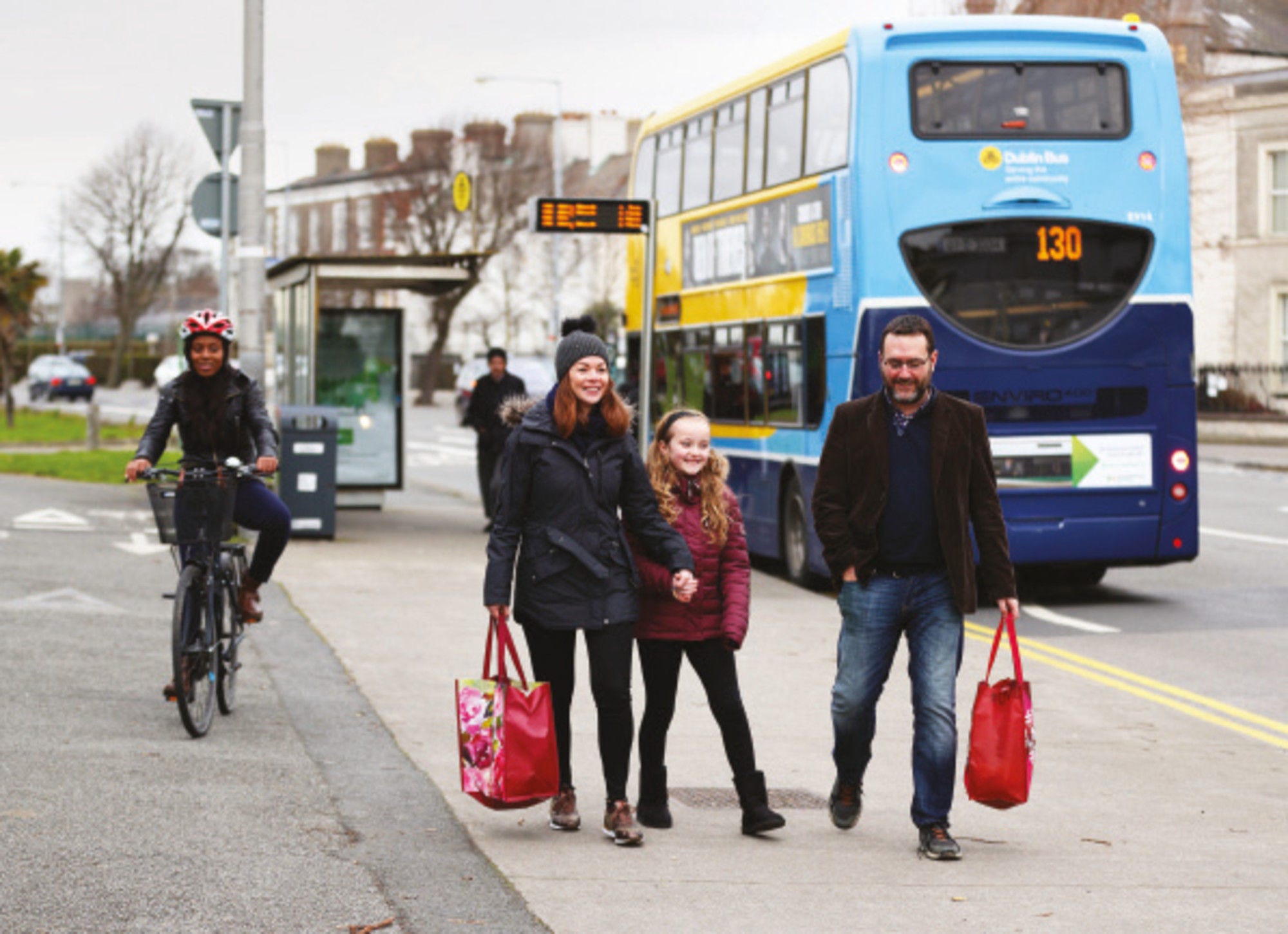Current mobility patterns in Ireland are incompatible with the country’s target to halve emissions in the transport sector by 2030. While important, electrification and fuel efficiency improvements in vehicles are insufficient to meet Ireland’s ambitious target: large behavioural change in the direction of sustainable modes and travel reductions are needed. Such changes will only be possible if policies can shift Irish transport systems away from car dependency. Building on the OECD process “Systems Innovation for Net Zero” and extensive consultation with Irish stakeholders, this report assesses the potential of implemented and planned Irish policies to transform car-dependent systems. It identifies transformative policies that can help Ireland transition to sustainable transport systems that work for people and the planet. It also provides recommendations to scale up such transformative policies and refocus the electrification strategy so that it fosters, rather than hinders, transformational change.
Redesigning Ireland’s Transport for Net Zero

Abstract
Executive Summary
Ireland plans to achieve an economy-wide 51% greenhouse gas emission reduction by 2030 (relative to 2018 levels), for which the transport sector is required to reduce its emissions by 50% by 2030. With three out of four citizens (on average) opting to travel by car on a daily basis, current mobility patterns in Ireland are incompatible with the country’s greenhouse gas reduction targets.
Ireland has an opportunity to increase the pace of emission reductions in the transport sector while improving well-being. To unleash this opportunity, Irish efforts and attention need to prioritise policies with the transformative potential to shift the country’s transport systems away from car dependency.
This report assesses implemented and planned Irish policy efforts to reduce emissions in the transport sector. It identifies the transformative policies that could help the country redesign its passenger surface transport system (transport system, hereafter) to meet its climate goals for the sector.
The analysis is guided by the OECD “Systems Innovation for Net Zero” process. The process is designed to help policy makers take a systemic approach for identifying policies with high transformative potential, via three steps:
1. envision the goal(s) and the patterns of behaviours a properly functioning system fosters, and challenge ingrained mental models underlying poorly functioning systems;
2. understand why the current system is not achieving envisioned goals and patterns of behaviour, and determine whether implemented and planned policies have the potential to redesign the system;
3. prioritise and scale up the policies which can redesign systems to foster desirable patterns of behaviour.
Key findings
The Irish transport system fosters growing car use and emissions by design, and is thus unfit to enable the country to meet its greenhouse gas reduction goals while improving well-being. Growing car use in Ireland is largely determined by car-dependent transport and urban systems, organised around increased mobility and characterised by three unsustainable dynamics: induced car demand, urban sprawl, and the sustainable modes low-attractiveness trap.
Aiming at decarbonising the system via private vehicle improvements is unlikely to lead to substantially different patterns of behaviour, rapid emissions reductions, and large well-being improvements. Car-dependent systems make rapid electrification slow and difficult, by locking-in large and growing vehicle fleets. Even with improved (and fully-electric) vehicles, they also fail to reduce life-cycle emissions, address accessibility gaps and other negative impacts (e.g. road fatalities).
Implemented policies and those expected to bring the highest emission reduction shares according to Ireland’s Climate Action Plan 2021 are unlikely to help the country transform its car-dependent system. Most efforts in Ireland have been allocated to policies with a low to medium potential to transform the current system (e.g. electric vehicle incentives for private cars, increasing the budget allocated to public transport infrastructure compared to what is allocated to car infrastructure, carbon and road prices, infill/brownfield development targets). Currently prioritised policies, such as electric vehicle incentives, also reinforce car dependency, further locking the country into a system that fosters growing car use and emissions by design.
Ireland could unleash enormous opportunities by prioritising policies with a high potential for transforming its car-dependent system. While taking different shapes, transformation of the transport system away from car dependency is possible in different types of territories (e.g. Dublin, Cork, Sligo, and Kildare).
Policies with a high transformative potential include road space reallocation, the mainstream of on-demand shared services and communication efforts to address car-centric mindsets. Currently, these policies are marginal and implemented on a small scale. The recently issued (2022) Sustainable Mobility Policy increases the centrality of transformative policies, reflecting an effort towards transformative change.
Key recommendations
Redefine the goal of the transport system as sustainable accessibility. This calls for challenging ingrained mindsets and shifting away from identifying high/growing mobility with well-being. Revisiting measurement frameworks and models is also relevant. Setting sustainable accessibility as a goal for land-use/housing planning is also necessary, as ensuring proximity is key for delivering sustainable accessibility.
Prioritise the up-scale of policies with high potential to transform the car-dependent system. While no single policy can transform a complex system, policies with a high transformative potential can help Ireland redesign the structure of its transport system so that sustainable transport modes are the first choice for the bulk of trips. As mentioned above, the actions included in the recently issued Sustainable Mobility Policy have a higher focus on transformative policies. These actions can be complemented and enlarged with the actions recommended in this report to ensure the upscale of such policies. Reflecting the recommendations in this report in the upcoming update of the Climate Action Plan will also be relevant. The effectiveness of the policies identified as having a low or medium transformative potential in car-dependent systems can increase when implemented alongside transformative policies.
Redefine the electrification strategy to support the transition towards a sustainable transport system. Embed the electrification strategy in the goal of sustainable accessibility and reduced car travel, and make sure the strategy prioritises walking, cycling, micro-mobility and high occupancy and shared travel where larger vehicles are the only option. In line with this recommendation, the current target (included in both the Climate Action Plan and the new Sustainable Mobility Policy) for reducing car travel should include total (rather than solely fossil-fuel-based) car kilometres and be set along with a target on the share of car-kilometres travelled by battery-electric vehicles. More ambitious targets on modal shifts, and targets aiming at delivering improved proximity and access with active and shared modes (including public transport and micro-mobility) need to be set.
Embrace a systemic approach to policy decision-making across government departments. Achieving transformative change will require aligning action across government and addressing existing inconsistencies. Transformative policies can be prioritised by mainstreaming system-focused policy analysis and decisions to ensure a shared understanding of root causes by all stakeholders and to expose ingrained ideas (and related actions) that hinder progress. Rethinking multi-level governance is also required to improve government engagement with stakeholders, promote bottom-up and participatory approaches, increase local capacity to think in terms of systems, and communicate and implement transformative policies.
Related publications
-
8 October 2024
-
 Case study8 October 2024
Case study8 October 2024 -
30 July 2024
-
 18 July 2024
18 July 2024 -
 Country note10 July 2024
Country note10 July 2024


